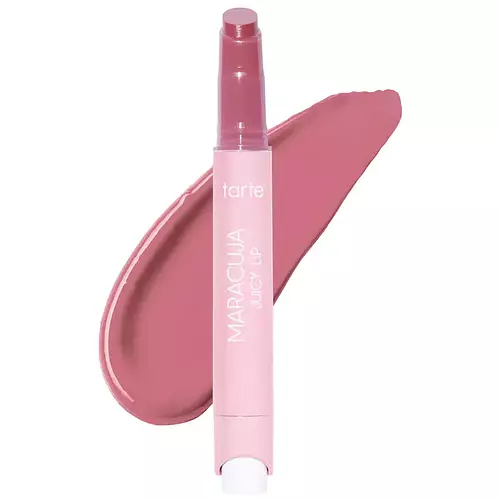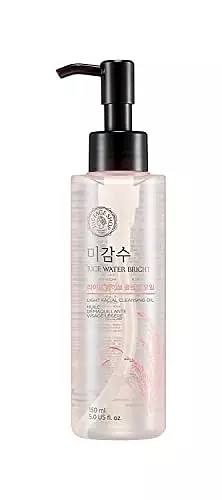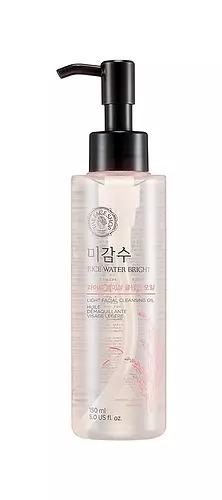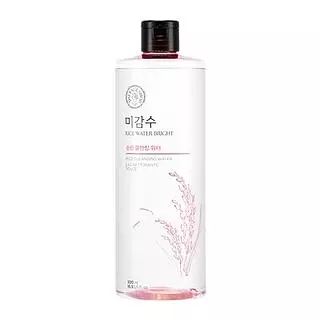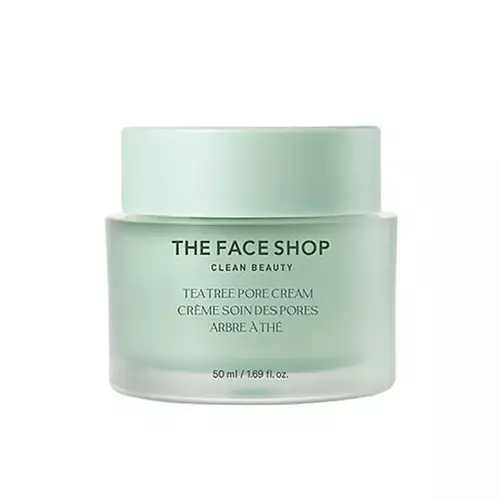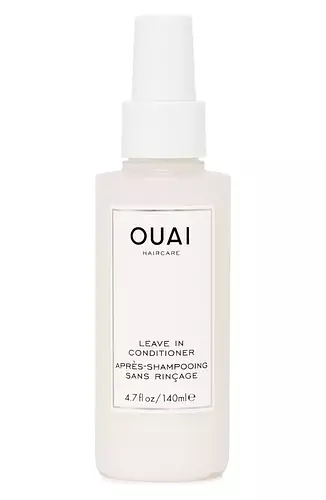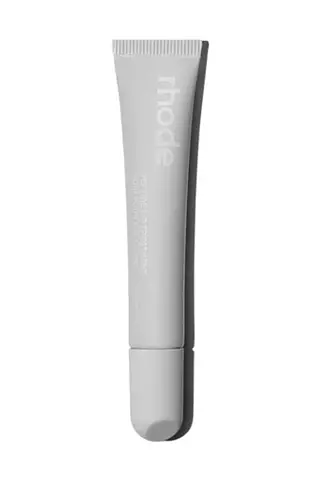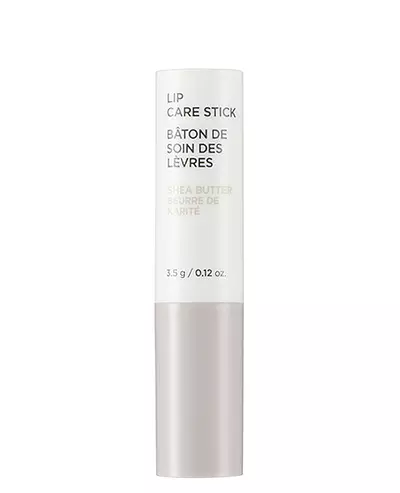
The Face Shop Lip Care Stick Ingredients Explained
Updated on January 15, 2024 Submitted by Lapaki
Overview
What it is
Lip moisturizer with 25 ingredients that contains exfoliants and Vitamin E
Cool Features
It is reef safe
Suited For
It has ingredients that are good for anti aging, dry skin, brightening skin and scar healing
Free From
It doesn't contain any harsh alcohols, parabens or sulfates
Fun facts
The Face Shop is from South Korea.
We independently verify ingredients and our claims are backed by peer-reviewed research. Does this product need an update? Let us know.
Lip moisturizer with 25 ingredients that contains exfoliants and Vitamin E
Quick info
You should know
Notable Ingredients
This product contains 1 ingredient that may have this attribute:
This product contains 2 ingredients that may have this attribute:
Benefits
This product contains 2 ingredients that may have this attribute:
This product contains 1 ingredient that may have this attribute:
This product contains 1 ingredient that may have this attribute:
This product contains 1 ingredient that may have this attribute:
Concerns
This product contains 2 ingredients that may have this attribute:
This product contains 1 ingredient that may have this attribute:
This product contains 1 ingredient that may have this attribute:
This product contains 1 ingredient that may have this attribute:
Ingredients 25
We don't have a description for Phytosteryl/Isostearyl/Cetyl/Stearyl/Behenyl Dimer Dilinoleate.
This ingredient is a form of glycerin with emulsifying and emollient properties.
Triethylhexanoin is created from glycerin and 2-ethylhexanoic acid. It is a solvent and emollient.
Ceresin is a wax derived from ozokerite. It is an alternative to beeswax.
Hydrogenated Polyisobutene is a synthetic polymer. Polymers are compounds with high molecular weight. Hydrogenated Polyisobutene is an emollient and texture enhancer.
Macadamia Ternifolia Seed Oil is the fixed oil obtained from Macadamia nut.
Synthetic Wax is created from fossil fuels such as natural gas. It is used to enhance texture, adjust pH, and as an occlusive.
Microcrystalline Wax is created by de-oiling petroleum. It is highly refined and purified before being added to cosmetics.
Diisostearyl Malate is an emollient and most often used in lip products. It comes from isostearyl alcohol, a fatty acid, and malic acid, an AHA.
1,2-Hexanediol is a multi-tasker ingredient. It acts as a preservative to increase shelf-life and can aid other preservatives in preventing microbe growth. 1,2-Hexanediol also helps the skin retain moisture as a humectant.
Dimethicone is a silicone used for making products smooth and silky. It also has the added benefit of sealing in hydration. The amount of dimethicone found in beauty products is considered safe and non-comedogenic, meaning it won't clog pores.
Butyrospermum Parkii Butter is a plant lipid from the fruit of the Shea Tree. It is an effective skin hydrator and emollient.
Tocopherol (also known as Vitamin E) is a common antioxidant used to help protect the skin from free-radicals and strengthen the skin barrier. It's also fat soluble - this means our skin is great at absorbing it.
Parfum is a catch-all term for an ingredient or more that is used to give aroma to products. Parfum, or fragrance, can be a blend of hundreds of chemicals or plant oils. This means every product with "fragrance" or "Parfum" in the ingredients list is a different mixture.
Ci 77891 is a white pigment from Titanium dioxide. It is naturally found in minerals such as rutile and ilmenite.
Water. It's the most common cosmetic ingredient of all. You'll usually see it at the top of ingredient lists, meaning that it makes up the largest part of the product.
CI 19140 is also known as Tartrazine. Tartrazine is a synthetic dye used in cosmetics, foods, and medicine to add a yellow color.
Citronellol is used to add fragrance/parfum to a product. It is often derived from plants such as roses. In fact, it can be found in many essential oils including geranium, lavender, neroli, and more. The scent of Citronellol is often described as "fresh, grassy, and citrus-like".
Linalool is a fragrance and helps add scent to products. It's derived from common plants such as cinnamon, mint, citrus, and lavender.
Diphenylsiloxy Phenyl Trimethicone, Phytosteryl/Isostearyl/Cetyl/Stearyl/Behenyl Dimer Dilinoleate, Polyglyceryl-2 Triisostearate, Dipentaerythrityl Hexa C5-9 Acid Esters, Triethylhexanoin, Ceresin, Hydrogenated Polyisobutene, Macadamia Ternifolia Seed Oil, Polyglyceryl-6 Behenate, Synthetic Wax, Microcrystalline Wax, Ethylene/Propylene Copolymer, Diisostearyl Malate, 1,2-Hexanediol, Dimethicone, Quaternium-18 Bentonite, Butyrospermum Parkii Butter, Tocopherol, Parfum, CI 77891, Water, Punica Granatum Fruit Extract, CI 19140, Citronellol, Linalool
Ingredient Ratings
Based on the number of likes and dislikes each ingredient has received.
Ingredients Explained
Diphenylsiloxy Phenyl Trimethicone is a type of silicone.
We don't have a description for Phytosteryl/Isostearyl/Cetyl/Stearyl/Behenyl Dimer Dilinoleate.
This ingredient is a form of glycerin with emulsifying and emollient properties.
As an emulsifier, this ingredient helps keep products together while adding a thick texture. The manufacturer states this ingredient has emollient properties. Emollients help keep the skin hydrated by trapping moisture in.
Polyglyceryl-2 Triisostearate is created by reacting diglycerin and isostearic acid. Due to the isostearic acid base, it may not be safe for Malassezia or fungal acne.
Learn more about Polyglyceryl-2 TriisostearateWe don't have a description for Dipentaerythrityl Hexa C5-9 Acid Esters.
Triethylhexanoin is created from glycerin and 2-ethylhexanoic acid. It is a solvent and emollient.
As a solvent, Triethylhexanoin helps dissolve ingredients to stable bases or help evenly distribute ingredients throughout the product.
It is also an emollient and helps condition the skin.
Learn more about TriethylhexanoinCeresin is a wax derived from ozokerite. It is an alternative to beeswax.
The most common process of creating ceresin is by using heat and sulfuric acid.
Hydrogenated Polyisobutene is a synthetic polymer. Polymers are compounds with high molecular weight. Hydrogenated Polyisobutene is an emollient and texture enhancer.
In one study, Hydrogenated Polyisobutene showed better skin hydration levels than Caprylic/Capric Triglyceride. As an emollient, it helps keep your skin soft and hydrated by trapping moisture in.
Hydrogenated Polyisobutene is often used as a mineral oil replacement.
Learn more about Hydrogenated PolyisobuteneMacadamia Ternifolia Seed Oil is the fixed oil obtained from Macadamia nut.
Macadamia seed oil is rich in fatty acids, including oleic acid (45-75%), palmitoleic acid (7-33%), and palmitic acid (6-12%). They also contain various B vitamins, iron, and magnesium.
Palmitoleic acid has been shown to help soothe inflammation and promote wound healing. It is also naturally found in the fat of our skin.
Macadamia seed oil may not be malassezia folliculitis, or fungal-acne, safe.
Learn more about Macadamia Ternifolia Seed OilPolyglyceryl-6 Behenate isn't fungal acne safe.
Synthetic Wax is created from fossil fuels such as natural gas. It is used to enhance texture, adjust pH, and as an occlusive.
It may also be used as an abrasive ingredient to exfoliate the skin.
Synthetic Wax may not be fungal acne safe.
Learn more about Synthetic WaxMicrocrystalline Wax is created by de-oiling petroleum. It is highly refined and purified before being added to cosmetics.
Microcrystalline Wax is used to enhance the texture and create even consistency. It helps stabilize a product by preventing ingredients from separating.
Ethylene/Propylene Copolymer is an exfoliant.
Diisostearyl Malate is an emollient and most often used in lip products. It comes from isostearyl alcohol, a fatty acid, and malic acid, an AHA.
As an emollient, Diisostearyl Malate helps create a thin film on your skin to trap moisture in. This helps keep your skin soft and smooth.
1,2-Hexanediol is a multi-tasker ingredient. It acts as a preservative to increase shelf-life and can aid other preservatives in preventing microbe growth. 1,2-Hexanediol also helps the skin retain moisture as a humectant.
In products that are water-based, this ingredient can help stabilize perfumes and fragrances. It can also help make the texture of products softer and more smooth.
Dimethicone is a silicone used for making products smooth and silky. It also has the added benefit of sealing in hydration. The amount of dimethicone found in beauty products is considered safe and non-comedogenic, meaning it won't clog pores.
Dimethicone has been found increase absorption in skin, boosting the benefits of other ingredients. While there is concern for the safety of dimethicone, the levels used in skincare are safe for use.
We don't have a description for Quaternium-18 Bentonite.
Butyrospermum Parkii Butter is a plant lipid from the fruit of the Shea Tree. It is an effective skin hydrator and emollient.
Emollients help soothe and soften your skin. It does this by creating a protective film on your skin. This barrier helps trap moisture and keeps your skin hydrated. Emollients may be effective at treating dry or itchy skin.
Shea butter is rich in antioxidants. Antioxidants help fight free-radicals, or molecules that may harm the body. It is also full of fatty acids including stearic acid and linoleic acid. These acids help replenish the skin and keep skin moisturized.
While Shea Butter has an SPF rating of about 3-4, it is not a sunscreen replacement.
Shea butter may not be fungal acne safe. We recommend speaking with a professional if you have any concerns.
Learn more about Butyrospermum Parkii ButterTocopherol (also known as Vitamin E) is a common antioxidant used to help protect the skin from free-radicals and strengthen the skin barrier. It's also fat soluble - this means our skin is great at absorbing it.
Vitamin E also helps keep your natural skin lipids healthy. Your lipid skin barrier naturally consists of lipids, ceramides, and fatty acids. Vitamin E offers extra protection for your skin’s lipid barrier, keeping your skin healthy and nourished.
Another benefit is a bit of UV protection. Vitamin E helps reduce the damage caused by UVB rays. (It should not replace your sunscreen). Combining it with Vitamin C can decrease sunburned cells and hyperpigmentation after UV exposure.
You might have noticed Vitamin E + C often paired together. This is because it is great at stabilizing Vitamin C. Using the two together helps increase the effectiveness of both ingredients.
There are often claims that Vitamin E can reduce/prevent scarring, but these claims haven't been confirmed by scientific research.
Learn more about TocopherolParfum is a catch-all term for an ingredient or more that is used to give aroma to products. Parfum, or fragrance, can be a blend of hundreds of chemicals or plant oils. This means every product with "fragrance" or "Parfum" in the ingredients list is a different mixture.
In the US, the alternative name for parfum is 'fragrance'. The term 'fragrance' is not regulated in many countries. In many cases, it is up to the brand to define this term.
For instance, many brands choose to label themselves as "fragrance-free" because they are not using synthetic fragrances. However, their products may still contain ingredients such as essential oils that are considered a fragrance. One example is Calendula flower extract. Essential oil ingredients still impart a scent or 'fragrance'.
Depending on the blend, it can cause allergies and sensitivities on the skin. Some ingredients that are known EU allergens include linalool and citronellol.
Products use parfum often to give products a scent or cover up smells of different ingredients.
The bottom line is: not all fragrances/parfum/ingredients are created equally. If you are worried about fragrances, we recommend taking a closer look at an ingredient. And of course, we always recommend speaking with a professional.
Learn more about ParfumCi 77891 is a white pigment from Titanium dioxide. It is naturally found in minerals such as rutile and ilmenite.
It's main function is to add a white color to cosmetics. It can also be mixed with other colors to create different shades.
Ci 77891 is commonly found in sunscreens due to its ability to block UV rays.
Learn more about CI 77891Water. It's the most common cosmetic ingredient of all. You'll usually see it at the top of ingredient lists, meaning that it makes up the largest part of the product.
So why is it so popular? Water most often acts as a solvent - this means that it helps dissolve other ingredients into the formulation.
You'll also recognize water as that liquid we all need to stay alive. Talk about multi-purpose! If you see this, drink a glass of water. Stay hydrated!
Learn more about WaterWe don't have a description for Punica Granatum Fruit Extract.
CI 19140 is also known as Tartrazine. Tartrazine is a synthetic dye used in cosmetics, foods, and medicine to add a yellow color.
Tartrazine is created from petroleum and is water-soluble.
Some people may experience allergies from this dye, especially asthmatics and those with an aspirin intolerance.
Learn more about CI 19140Citronellol is used to add fragrance/parfum to a product. It is often derived from plants such as roses. In fact, it can be found in many essential oils including geranium, lavender, neroli, and more. The scent of Citronellol is often described as "fresh, grassy, and citrus-like".
Since the Citronellol molecule is already unstable, Citronellol becomes irritating on the skin when exposed to air.
Citronellol is a modified terpene. Terpenes are unsaturated hydrocarbons found in plants. They make up the primary part of essential oils.
Citronellol is not able to be absorbed into deeper layers of the skin. It has low permeability,
Citronellol is also a natural insect repellent.
Learn more about CitronellolLinalool is a fragrance and helps add scent to products. It's derived from common plants such as cinnamon, mint, citrus, and lavender.
Linalool has the same effect as Limonene when exposed to air. Oxidized linalool can cause allergies and skin sensitivity.
Linalool has a scent that is floral, spicy tropical, and citrus-like.
Learn more about LinaloolWhen to use
How this product is used by our community
Directions
Apply a moderate amount to dry and chapped lips
Apply a moderate amount to dry and chapped lips
Compared With
Here are some products that it's often compared with
More The Face Shop Products
See all The Face Shop productsMore Lip Moisturizers
See all lip moisturizersWe're dedicated to providing you with the most up-to-date and science-backed ingredient info out there.
The data we've presented on this page has been verified by a member of the SkinSort Team.
Read more about us



